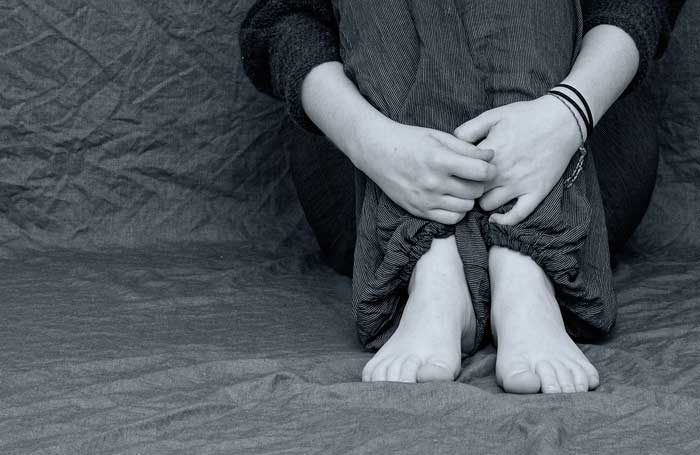Yelling at Your Kids: Why It’s Not the Best Parenting Strategy
Any parent knows that it won’t do to give way to strong emotions – yet this good intention is oftentimes hard to stick to. One minute you are cool, calm, and collected, and the next instant you are already over the edge due to your child’s unexpected acting out. And you find yourself shouting like there’s no tomorrow.
 This challenge faces every parent, and they, like you, end up feeling frustrated. Yet there are methods by which you can avoid yelling out and maintain a conversation that will be calm and far more fruitful in clearing the situation.
This challenge faces every parent, and they, like you, end up feeling frustrated. Yet there are methods by which you can avoid yelling out and maintain a conversation that will be calm and far more fruitful in clearing the situation.
Why do we yell at our own kids?
Raising the voice can seem to be the best way to stop the kid from doing something, engage their attention, give them to know that you are very, very angry. Although it does give vent to your feelings, really yelling at little ones is a poor way of communication.
So, everything calls for our abandoning the habit. Unless yelling is a form of verbal abuse, the infant rarely experiences a deep emotional impact of being yelled at; the worst is that shouting can become a fixed conversational manner in your family, and that would be really unwelcome.
Shouting precludes normal communication
There may be a few freaks who don’t mind being shouted down, but most of us resent it. The same goes for our children. While you can achieve your temporary goals by yelling the kid down, what really happens is that they start to get shut and stop listening. This signals the beginning of communication breakdown.
Yelling adults don’t look their best
At the outset the infants look up to their parents: they are all but wonderful wizards who walk like giants and have command over the necessities of life – food, warmth, love. They cannot but be trustful to them; yet if adults suddenly become frightening, the child’s security is threatened. Researchers carried out a study filming shouting people, and these videos were then played to the same people. Many of them were aghast at how their faces had gotten distorted. Even if our children don’t show it and freeze, they are hardly so grown as to undergo such treatment.
Infantile reaction to yelling is freeze, flight or fight
According to medicos, if a child is regularly subjected to yelling, it begins to affect their brains. If we are experiencing a soothing situation the neurotransmitters in the brain generate soothing biochemicals which create a sense of security. The child creates neural pathways that make them feel calm.
Let’s now take the opposite situation: an infant, their prefrontal cortex not yet fully developed, their executive function isn’t going at full throttle, is on the receiving end of a good yelling. What happens in his brain? It exudes biochemicals making them freeze, flight, or fight. So they either punch you or run away, or they get uptight and unresponsive. In terms of brain formation it doesn’t bode well. Repeated many times, this response becomes a fixed habit.
Ways to hold yourself in hand when you want to yell
To begin with, remind yourself that children don’t often push you off the edge purposefully – and it is especially true with younger toddlers. They didn’t want to annoy you.
Think that by shouting at them you teach them anti-social behavior when they will in turn yell at their opponent in adversity.
Drive the child out of the trouble-charged situation by humor and jokes – if you can make them laugh out, you all but resolved the tension.
Set yourself to shout only in crisis, to prevent the kid from getting injured. Once they are past the danger, continue communicating in a low voice.
Raised voices impede quality communication, so make a habit of conducting calm dialogues with your kid on a regular basis. This way you will be able to teach and discipline them more effectively.
Yelling parents set an example to their children
An infant’s home atmosphere should be maintained as normal as possible. Those children who grow up in an environment vibrant with ceaseless yelling get accustomed to such behavior and they come to believe it is normal. So when a parent begins to berate them, the kid doesn’t take it as they should: it’s a customary procedure meaning nothing much. Whereas parents should be models of best behavior, or they will never have an obedient and well-behaved child.
Yelling doesn’t make for proper strictness
When shouting, parents may believe they are doing a really good job of disciplining the kid. Actually they are aggravating the situation. What they do is scare the toddler – it may work well to put the child off what he or she is doing, but meantime it is undermining the good attitude.
Now if they used humor, they would do a much better job. Joking your way out of a difficult situation is what helps you retain your authority as well as keep up the connection. Laughing out loud helps bond and avoid scaring the infant.
When shouting is all right
Most of the time yelling works against your happy family life, yet time and again loud voice does its useful trick. Kids fighting each other are not aware of the danger of their inflicting serious injuries upon each other. In such a case a shock is a good way to make them desist. Once you have succeeded in attracting their attention, make your voice lower at once. Warning and explaining shouldn’t be done in the same voice.
You let yourself go; what now?
Even if you have acquired a good mastery over your temper, it can still occur that you break into yelling. If you did, don’t overplay it. Say you realize you were wrong and apologize. The child will grow to understand that we can slip and we should apologize for our misdeeds.
It is the kid who starts yelling? Tell them it’s not appropriate behavior and poor communication. Let them know you will listen to them after they have quietened down.
If you feel overexcited and flooded by emotions, set an example and show perfect control when thrashing out issues with your child(ren). This way you can give your children some good lessons of conflict management, understanding, proper approach to making mistakes, and, finally, forgiveness as a solid basis for family interrelations.
Those who still believe in yelling as a disciplinary method may already be observing the result of their labors:
Your kids raise voices habitually when talking to one another.
Instead of talking to you with due respect, they answer back and shout if they want to make their point.
The relationship within the family is far from being stable; there are times when communication falls apart, and no-one wants to understand anyone else.
You realize that you children are no longer under your influence but take their cues from their class- or playmates.
Still things can be changed. Engage your children in an open-hearted discussion about shouting, why it is wrong and why anger precludes proper communication.
Say that you want your home to be a calm and relaxed place where everyone treats everybody else with due respect. There’s no need to mete out judgments, shame and blame. If you succeed in committing everyone to the idea you will delight in the pleasure of an open communication.
You are likely to make mistakes, but don’t let it put you down. You have to walk this road and you will be glad you did in the long run.




